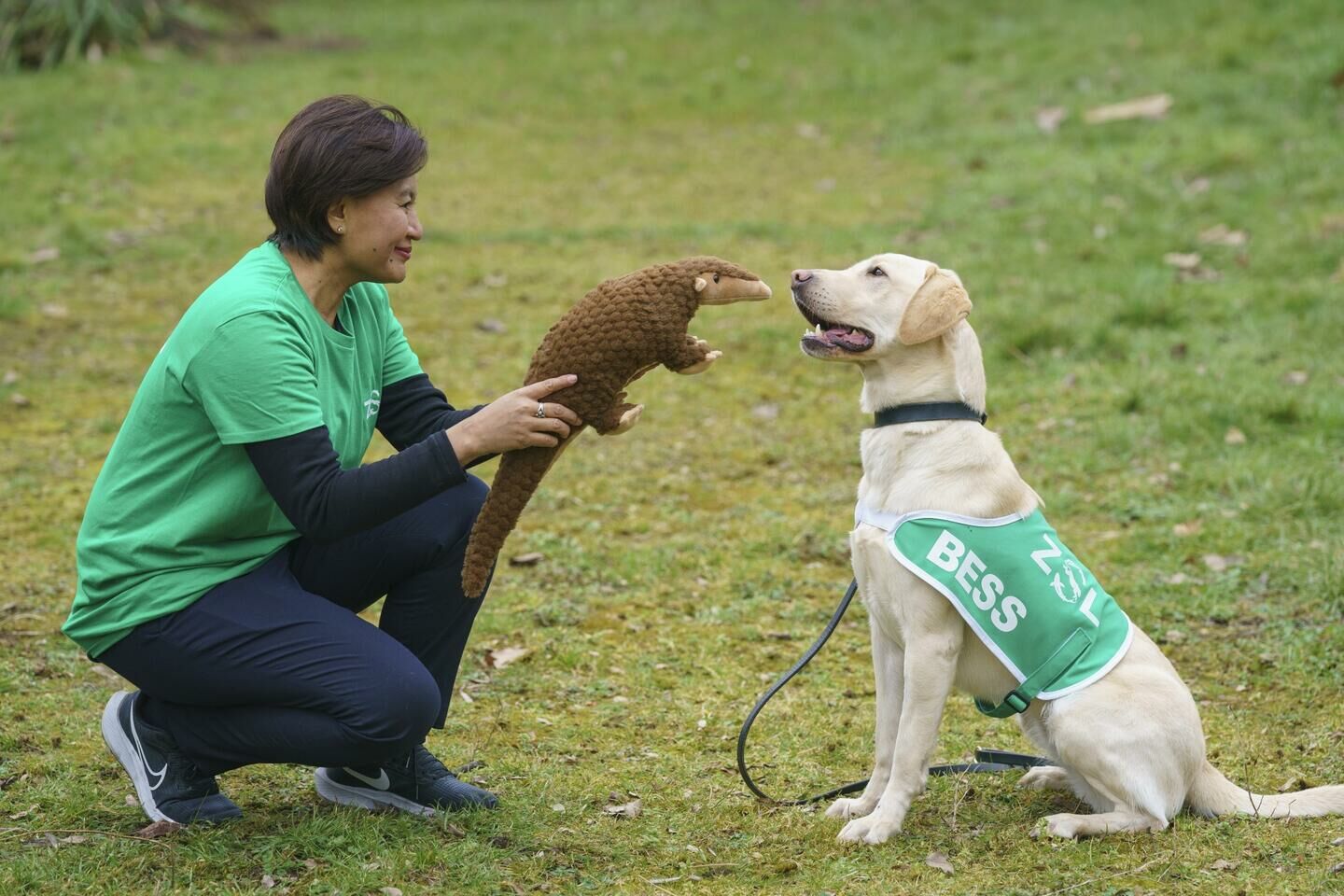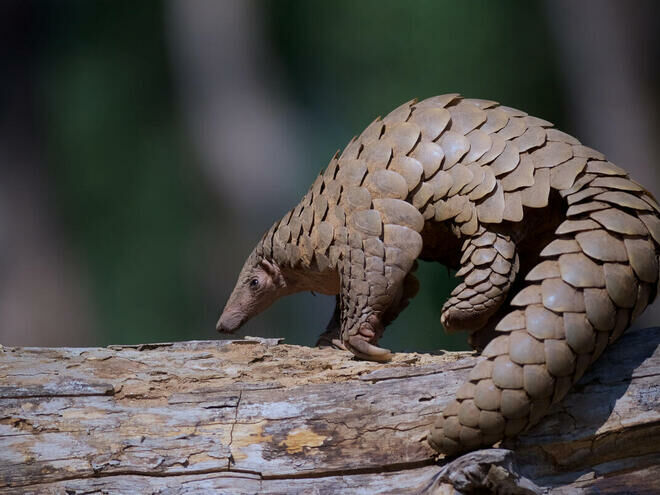British labradors head to Thailand to sniff out smuggled pangolins

Two sharp-nosed Labradors from England are heading to Thailand to save critically-endangered pangolins from wildlife smugglers.
The elusive, nocturnal pangolin – able to roll up into an armour-plated ball when threatened – is the most trafficked animal in the world.
Known as “scaly anteaters,” these unique mammals disguised as reptiles are trafficked primarily for their scales, which are used in traditional Chinese medicine. Pangolin meat is also considered a delicacy in Vietnam, and China.
Sometimes, pangolins are trafficked just for fashion, being the only scale-covered mammal in the world. Now, all eight species of pangolin are at risk of extinction – four of which are found in Asia: the Indian pangolin, the Philippine pangolin, the Sunda pangolin and the Chinese pangolin.
The Sunda pangolin, also known as the Malaysian pangolin, can be found mooching around in the forests of Thailand’s national parks.
Georgina Gerald, a pangolin specialist for the Zoological Society of London, told Reuters…
“Intelligence has been telling us that live pangolins are being trafficked all across Thailand – mainly by road. Some vehicles even have purpose-built concealed areas to transport the critically endangered species.”
Buster and Bess, two labradors from England, underwent an eight-week training course in London to learn how to sniff out pangolins.
The labs will soon fly to Thailand and patrol airports, ports and roads to detect and save pangolins in their battle against extinction.
“Not all heroes wear capes: some walk on all fours and have extremely powerful noses,” said Gerald.
In December, Thai police arrested a woman in Songkhla province as she stepped off a train and headed toward her car carrying two cooler bags, carrying nearly 70 strange animal carcasses.
Inside the coolers, police found over 50 kilograms of dead protected wildlife including seven monitor lizards (10 kilograms), one pangolin (4.5 kilograms), two langur monkeys (9.5 kilograms), 54 squirrels (10.5 kilograms), two mouse-deers (2.5 kilograms) and two civets (10.5 kilograms).
Kankamon confessed to selling the carcasses via social media to people who eat “exotic dishes.”
In 2021, a pangolin wandered out of the jungle in Phuket and curled up for a nap under a tree near a power plant in the Kamala district.
The name “pangolin” comes from the Malay word pengguling, meaning “one who rolls up.”

Latest Thailand News
Follow The Thaiger on Google News:


























